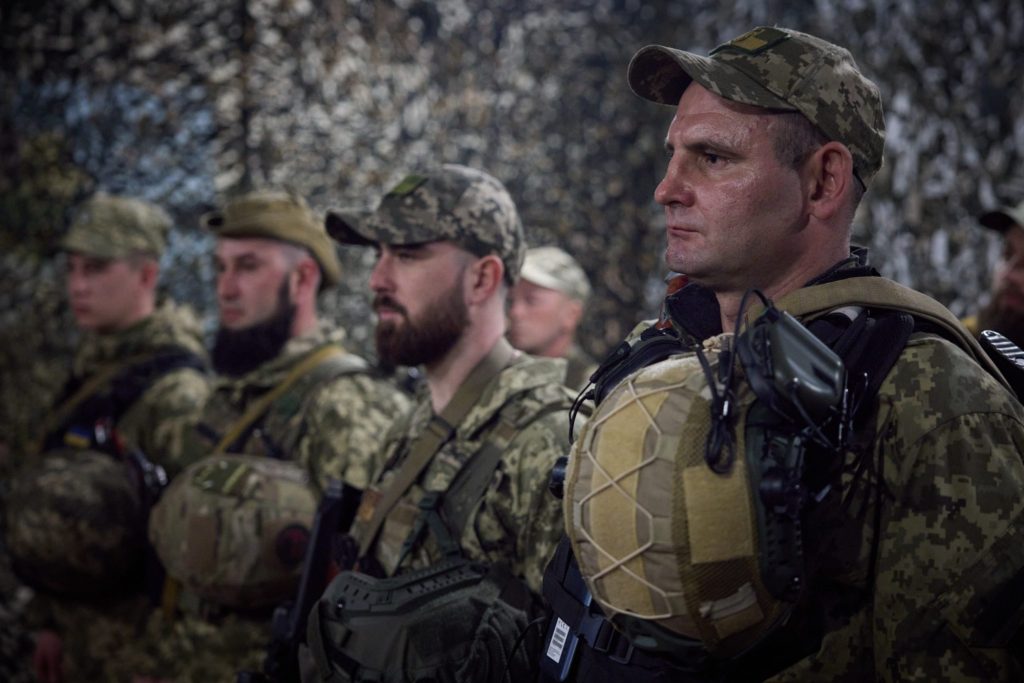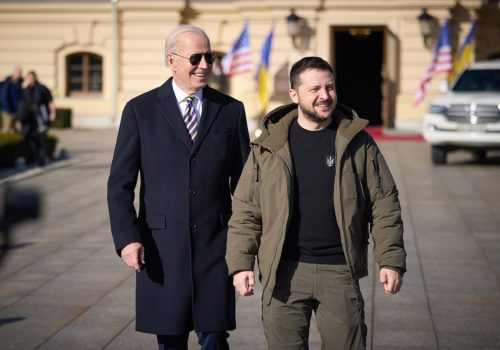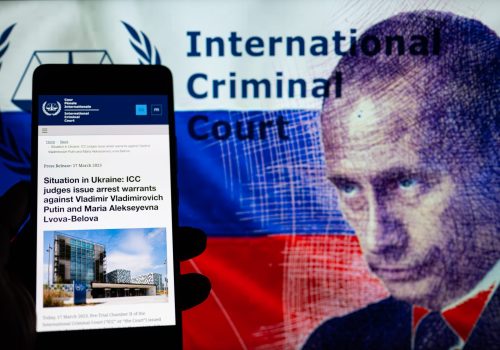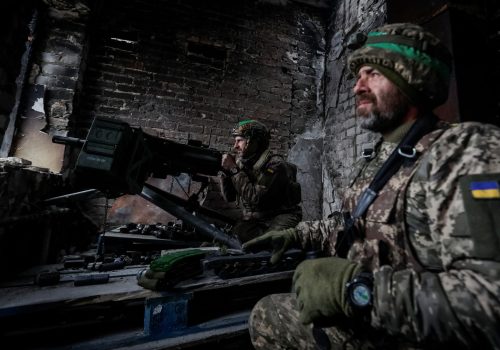With the full-scale Russian invasion of Ukraine now in its second year, the international debate continues over where the war is going and how it might end. While nobody would dispute that peace is desperately needed, there are still deep divisions over how this might best be achieved and what a potential future peace could look like.
Over the past year, there has been growing recognition throughout the democratic world that unless Putin is decisively defeated, any peace will be temporary in nature and the threat of further Russian aggression will remain. Nevertheless, many commentators continue to advocate for a compromise with the Kremlin that would allow Moscow to secure certain gains from its invasion of Ukraine in exchange for an end to hostilities.
Arguments in favor of a compromise peace are typically positioned in pragmatic terms as a “realist” approach to resolving the conflict. However, supporters of a negotiated settlement often appear to underestimate the revisionist realities and imperial ambitions underpinning the aggressive foreign policy of the Russian Federation.
One example of this troubling trend was the recent publication “Avoiding a Long War” by Samuel Charap and Miranda Priebe. This important report offered valuable analysis of the debate over how to end the war, but also contained some proposals that illustrate the potential dangers of pursuing a premature peace. In a March 7 letter to the Financial Times, the authors asserted that I had mischaracterized their report and created a false binary between supporting Ukraine’s resistance and engaging in “immediate and unconditional negotiations.” I respectfully disagree.
The authors claim not to argue that Ukraine’s willingness to talk should be made a condition for receiving aid, but the report itself appears fairly unambiguous on this issue. “The United States could decide to condition future military aid on a Ukrainian commitment to negotiations,” it states. “Setting conditions on aid to Ukraine would address a primary source of Kyiv’s optimism that may be prolonging the war: a belief that Western aid will continue indefinitely or grow in quality and quantity.”
The idea of compelling Ukraine to negotiate with Russia by conditioning military aid is problematic. Any such steps would inevitably encourage Russia to continue hostilities and would strengthen the already existing conviction in Moscow that Western support for Ukraine is a temporary phenomenon. Putin’s belief that Russia can ultimately outlast the West is no secret and has been widely commented on. Imposing any kind of limits on military support for Ukraine or linking this aid to negotiations would further convince Putin that he is right to question Western resolve.
Stay updated
As the world watches the Russian invasion of Ukraine unfold, UkraineAlert delivers the best Atlantic Council expert insight and analysis on Ukraine twice a week directly to your inbox.
One of the key positions shared by this report and many other arguments in favor of a compromise settlement is the notion that negotiations are inevitable as neither Russia nor Ukraine can realistically achieve a decisive military victory. This seems excessively pessimistic from a Ukrainian perspective, particularly in light of the Ukrainian army’s stellar achievements over the past year and the shocking performance of the Russian military.
Such thinking indicates that the lessons of recent history have not yet been fully digested. On the eve of the Russian invasion, most international analysts dramatically underestimated Ukraine’s military capabilities and expected Kyiv to fall in a matter of days. With the war now in its fourteenth month, Ukraine has already liberated around half the territory seized by Russia since February 24, 2022. Is the idea of further Ukrainian successes really so far-fetched?
Arguments that negotiations are inevitable also overlook Russia’s own apparent intransigence. At this stage, there is nothing to suggest the Kremlin has any genuine interest in reaching a lasting settlement. On the contrary, Moscow continues to insist Ukraine acknowledge the loss of approximately 20% of the country’s territory along with millions of Ukrainian citizens. This is not a serious negotiating position; it is a call for Ukraine’s capitulation. Anyone who suggests Russia’s demands could serve as the basis for a lasting peace is deluding themselves. Anyone arguing for Ukraine to accept such terms is inviting more war.
Eurasia Center events

Instead of exploring ways to push Ukraine back to the negotiating table, the international debate should be focusing primarily on measures to pressure Russia into ending its invasion. These measures could include expanded military aid for Ukraine, additional sanctions against Russia, and international war crimes litigation.
Compelling the victim to offer concessions may appear the route of least resistance, but this would only bring short-term relief. Russia would be emboldened by any gains in Ukraine and would soon renew its aggressive behavior. This would pose an immediate threat to the rest of Ukraine itself, and to a number of additional countries including Moldova, Kazakhstan, Armenia, and Belarus.
Other authoritarian regimes would also note Russia’s success in Ukraine and draw the obvious conclusions for their own foreign policies. A negotiated settlement at Ukraine’s expense would make the world a far less stable and more dangerous place for many years to come.
For Ukraine, continued resistance is not merely an alternative to an unpalatable peace. Nobody wants peace more than the Ukrainians themselves, but they also recognize that a premature peace would mean abandoning millions of their compatriots to the horrors of permanent Russian occupation while placing the entire existence of Ukraine as an independent state in doubt.
Arguments in favor of peace are certainly welcome and deserve to be heard. However, they risk doing more harm than good if they fail to acknowledge the Putin regime’s commitment to destroying the Ukrainian state, and the grave threats this poses to the future of international security.
Andriy Zagorodnyuk is chairman of the Center for Defence Strategies and Ukraine’s former minister of defense (2019–2020).
Further reading
The views expressed in UkraineAlert are solely those of the authors and do not necessarily reflect the views of the Atlantic Council, its staff, or its supporters.

The Eurasia Center’s mission is to enhance transatlantic cooperation in promoting stability, democratic values and prosperity in Eurasia, from Eastern Europe and Turkey in the West to the Caucasus, Russia and Central Asia in the East.
Follow us on social media
and support our work
Image: Ukrainian troops pictured in March 2023. (Pool / Latin America News Agency via Reuters Connect)




